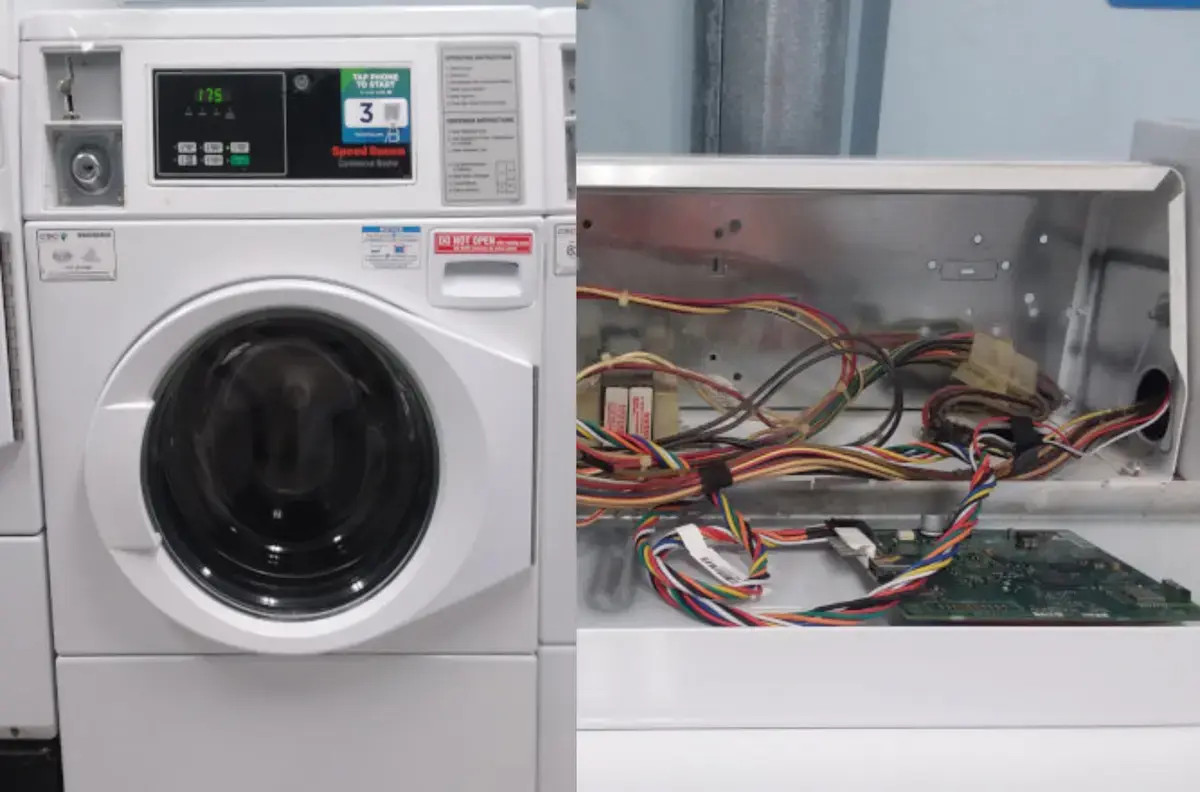- cross-posted to:
- news@lemmy.world
- cross-posted to:
- news@lemmy.world
Michael Orlitzky was not having a good day with his laundry. First CSC Serviceworks, a laundry management company, replaced all of the machines in his building with new coin-op or app-powered ones. The card reading machines had been an issue for years because the cards would stop working and the recharge machine would steal dollar bills, Orlitzky said. Now he had another enemy with its own quirks to get used to. Plus, CSC had replaced the machines about a week ahead of schedule, meaning that any cash on his or others’ laundry cards was now worthless and unusable.
Then, one of the new machines ate his quarters. The first machine was stuck on the cold setting, and he had to pay another $2 and move all of his belongings to another machine. He called CSC customer service and was on hold for an hour. CSC eventually told him to get a refund through the company’s website, which in turn insisted he install CSC’s app to proceed.
“That was the day I decided laundry would be free,” Orlitzky told 404 Media in an email.
Orlitzky then discovered multiple bypasses to CSC machines that allow him to wash his clothes for free. Since then, he’s been pretty quiet about the whole thing. Orlitzky published a brief write-up of his escapades on his personal website last year, but hasn’t shared it on social media. Some people in his building know his secret, but that’s about it. That is, until now, with Orlitzky due to speak at the DEF CON hacker conference in August about how he found infinite money cheats for CSC laundry machines. The talk is called “Laundering Money.”



And to a point I agree. But the way the story reads, it sounds like not much was done with the new machines after installation. We’ve all had money taken from faulty vending machines. But the stakes are slightly higher in this.
But isn’t he abusing it further than just getting his money back? If you know a weak point on a machine and use it just so you give yourself the right to abuse it, is criminal in my opinion. The first time is probably an accident and taking back what is his own. Now he has the knowledge and is going with the intention to abuse a defect.
Let’s say a shop website has an issue and one time the site was faulty and did take your money without anything in return. Then the hacker decides to break the law and get his money back, somewhat understandable, but not legally right. Still stealing. Then he realizes this loophole would be abused to make more money and nobody would notice. That’s not okay anymore.
Or do I read it wrong here? The above analogy hopefully explains how I view this situation.
Some businesses mess up… and understand that their clients need to feel like they’re being treated fairly in order to keep earning money from them, which means giving their money back, an apology, and maybe some free credit or discount coupons.
Other businesses, think they can abuse their users freely… until they end up pissing the wrong guy. Sometimes it’s a guy with a spray can, sometimes it’s a guy with a brick, and sometimes it’s someone capable of abusing them back.
You can call it illegal, it might even be morally wrong and excessive… but that’s what happens when you abuse people more than what they’re willing to take. Action and reaction, fuck around and find out, and all that.
You’re right, but at the same time.
Let’s say a website has an issue and was one time faulty. Clients lost money. Then the site owner is notified of the fault by multiple clients. The site owner uses some words to placate them and goes on with their day.
The site owner then makes some changes to the site, meaning they did have the time and money to pay a developer to update the site, but decides to keep the previous bug in, as a feature, implemented in a different way, this time better at stealing their money.
Sure, the obvious solution is to use another site (the laundromat down the road).
Anti Commercial AI License - CC BY-NC-SA 4.0